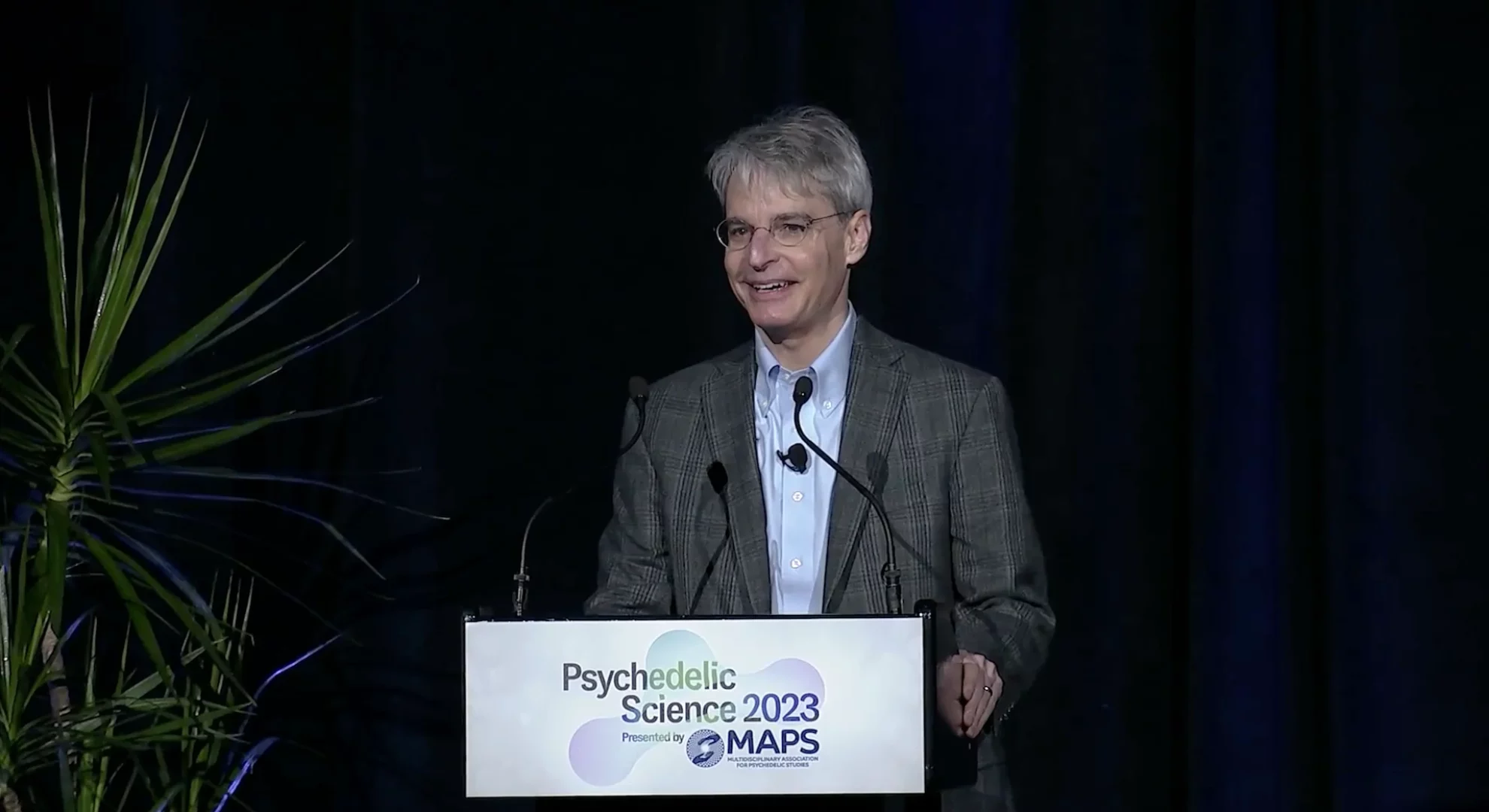
Effects of Psilocybin in Alcohol Use Disorder: Beyond Reduction
Dr. Bogenschutz will present quantitative psychological effects observed in a recently completed randomized controlled trial of psilocybin-assisted treatment for alcohol use disorder. Questionnaires administered at multiple timepoints throughout the study demonstrated decreased alcohol craving, improved affective tone, and improved executive control following psilocybin treatment. Separation from placebo persisted for the entire 32-week double-blind follow-up period. Dr. Agin-Liebes will present results of a qualitative study that utilized semi-structured interviews with study participants to capture their perspectives on psychological mechanisms of change. Participants reported that the psilocybin treatment helped them fosterself-awareness, self-compassion, and feelings of connectedness. The acute states during the psilocybin sessions were described as laying the foundation or “template” for developingadaptive regulation of negative affect as well as improvements in close relationships. The presentation will conclude with a discussion of possible next steps toward understanding how psilocybin and related drugs may reduce addictive behavior, and how these effects can best be harnessed to yield safe and effective treatments for substance use disorders.
Two to four sites will participate in this study. Aims of the study are 1) to characterize the acute effects of PO psilocybin 25 mg/70 kg, 30 mg/70 kg, and 40 mg/70 kg in alcohol dependent patients; 2) to evaluate the effect of psilocybin treatment on drinking outcomes for 32 weeks after the first administration, relative to diphenhydramine control; 3) to test whether or not characteristics of the drug administration session experiences mediate effects of psilocybin on short-term (1 week) persisting effects and post-session drinking behavior, 4) to evaluate the explanatory value of changes in alcohol craving, self-efficacy, motivation, and other psychological domains in accounting for the observed experimental effect of psilocybin relative to diphenhydramine control, and 5) to evaluate pre-post changes in drinking in participants after they receive psilocybin in the third session.
The total duration of psychosocial treatment in the double-blind period will be 12 weeks, and double-blind drug administration sessions will occur after 4 and 8 weeks. In the first psilocybin session, a dose of 25 mg/70 kg will be administered. Depending on the response in the first session, the dose for the second session may be increased to 30 mg/70 kg or 40 mg/70 kg, or held at 25mg/70kg. The dose of diphenhydramine will start at 50 mg, and may be increased to 100 mg or held at 50 mg in the second session, depending on response in the first session. Following completion of the double-blind period (34 weeks after randomization) all participants who meet interim safety criteria will be offered an additional session in which psilocybin will be administered. The drug will be administered during 8-hour sessions in an outpatient setting under close medical and psychiatric monitoring. The drug administration sessions will occur in the context of an extended version of Motivational Enhancement Therapy (Motivational Enhancement and Taking Action, META) with the addition of standardized preparation before and debriefing and follow-up after the psilocybin administration sessions. Extensive screening and baseline assessment will be completed, including thorough safety screening and assessment of participant characteristics that could potentially moderate treatment response. Within-session and short-term persisting effects will be assessed. Drinking outcomes and changes in several potential mediators of treatment effect, including motivation, self-efficacy, craving, depression, anxiety, and spiritual dimensions of the experience, will be measured until 50 weeks after the first drug administration session, for a total of 54 weeks from the initiation of treatment.
https://clinicaltrials.gov/ct2/show/NCT02061293
https://jamanetwork.com/journals/jamapsychiatry/fullarticle/2795625
Share: Effects of Psilocybin in Alcohol Use Disorder: Beyond Reduction
Facebook
Twitter
LinkedIn
Email




